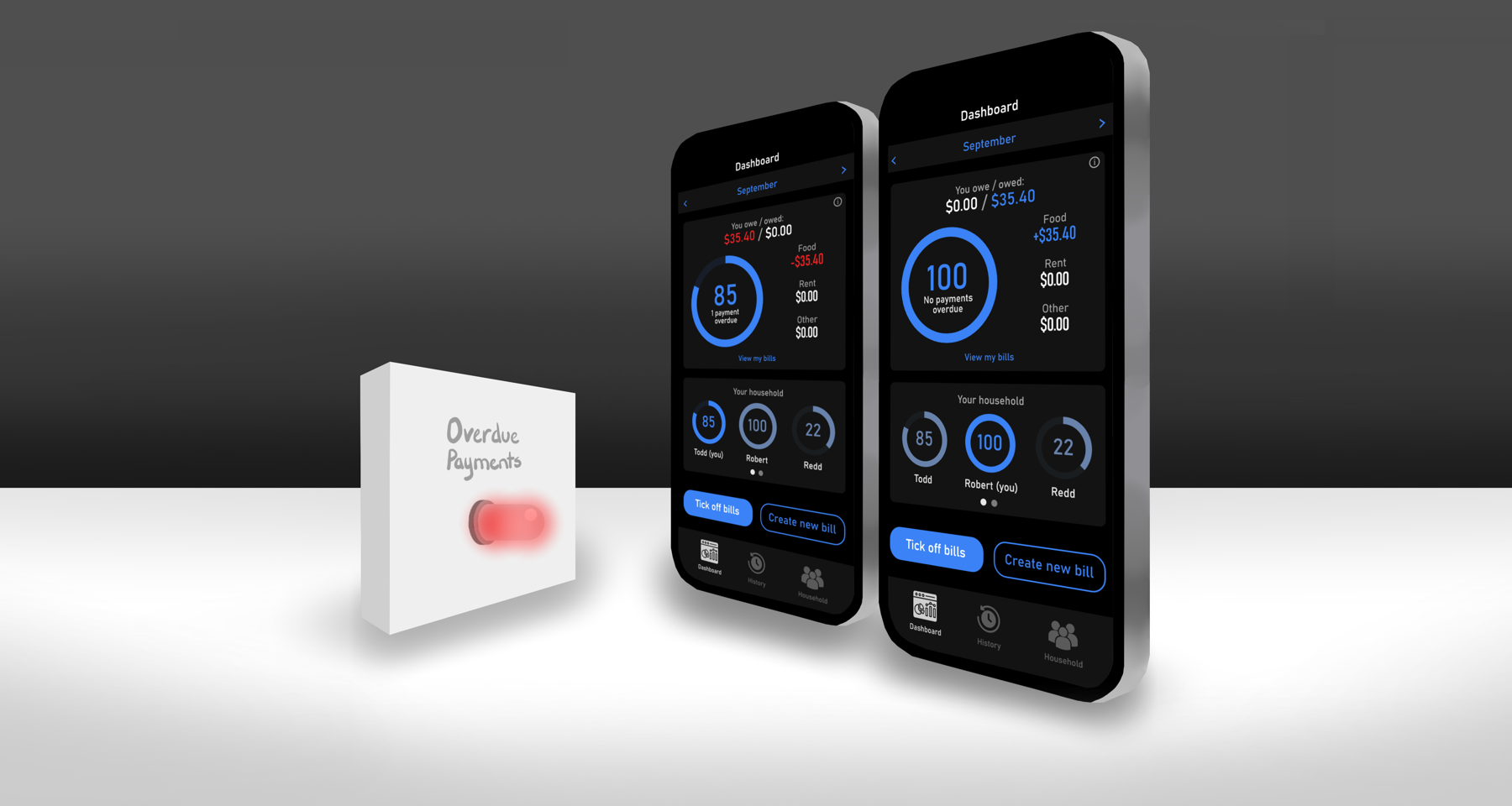
Splitbill is an application linked to a light system used to track and 'gamify' overdue payments across shared household members. The application allows household members to create new payments and send these 'bills' to relevant housemates. It involves a scoring system (from 0-100) which reward members whose payments are timely, and allows for competing with other shared households. These scores a reset every month (provided there are no overdue payments) to ensure motivation remains.
The light system is a simple LED which is intended to be placed in a communal area in a household (such as a kitchen or living room) to allow everyone to see. This light turns red when there is an overdue payment and yellow when there is an unpaid bill due within a day. This system aims to promote healthy communication between housemates in a fun and competitive environment.
This team project was done as a part of the course DECO2850 at the University of Queensland which focused on interaction design and human centred design.
This project started with the focus question of “How can we improve communication between household members to ensure fair cost distribution?”, however this changed as insights were revealed throughout the process.
Through the analysis of results from data collection methods of interviews and mapping diagrams, insights revealed that key user values which surfaced were 1) communication, 2) conflict, 3) awareness/action and 4) fairness/trust. More importantly, results revealed that unfair cost distribution was not an issue in the shared households which were interviewed. Instead, it was discovered that overdue payments such for bills consistently emerged as a primary concern. And hence, the direction of the project was changed to answer the question: “How can we improve communication between household members to reduce the occurrence of overdue payments?”
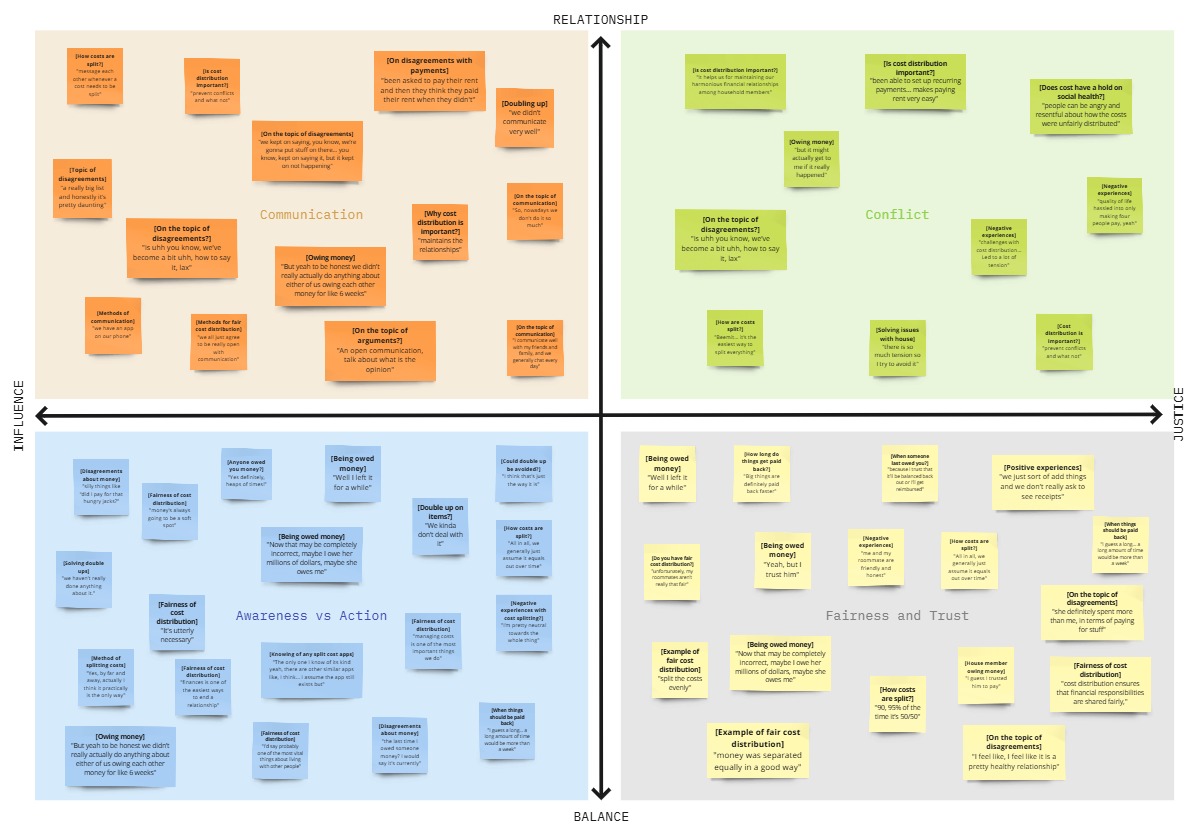
Using insights from data collection results, the team ideated multiple ideas with the aim of promoting communication to reduce and address overdue payments.
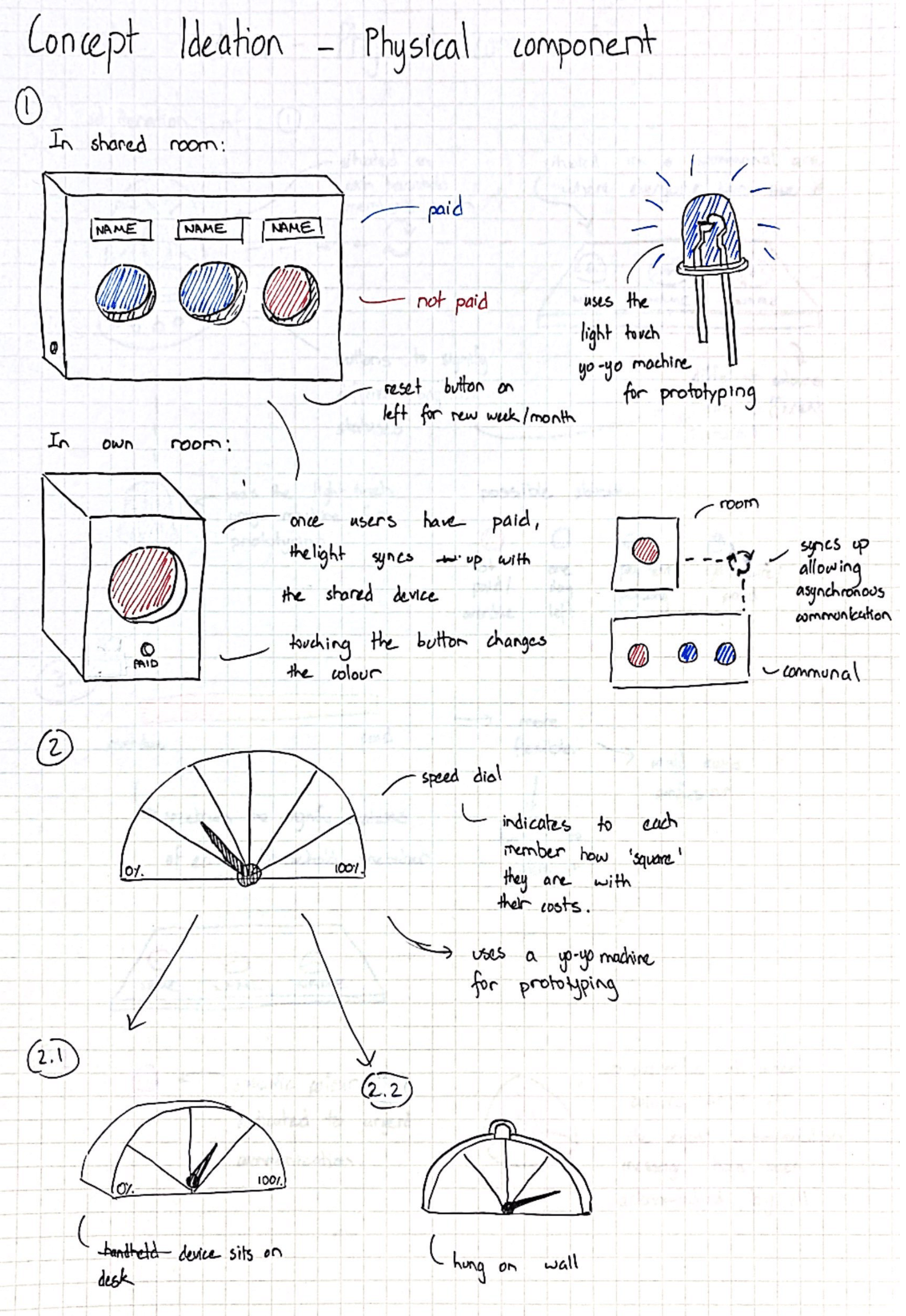
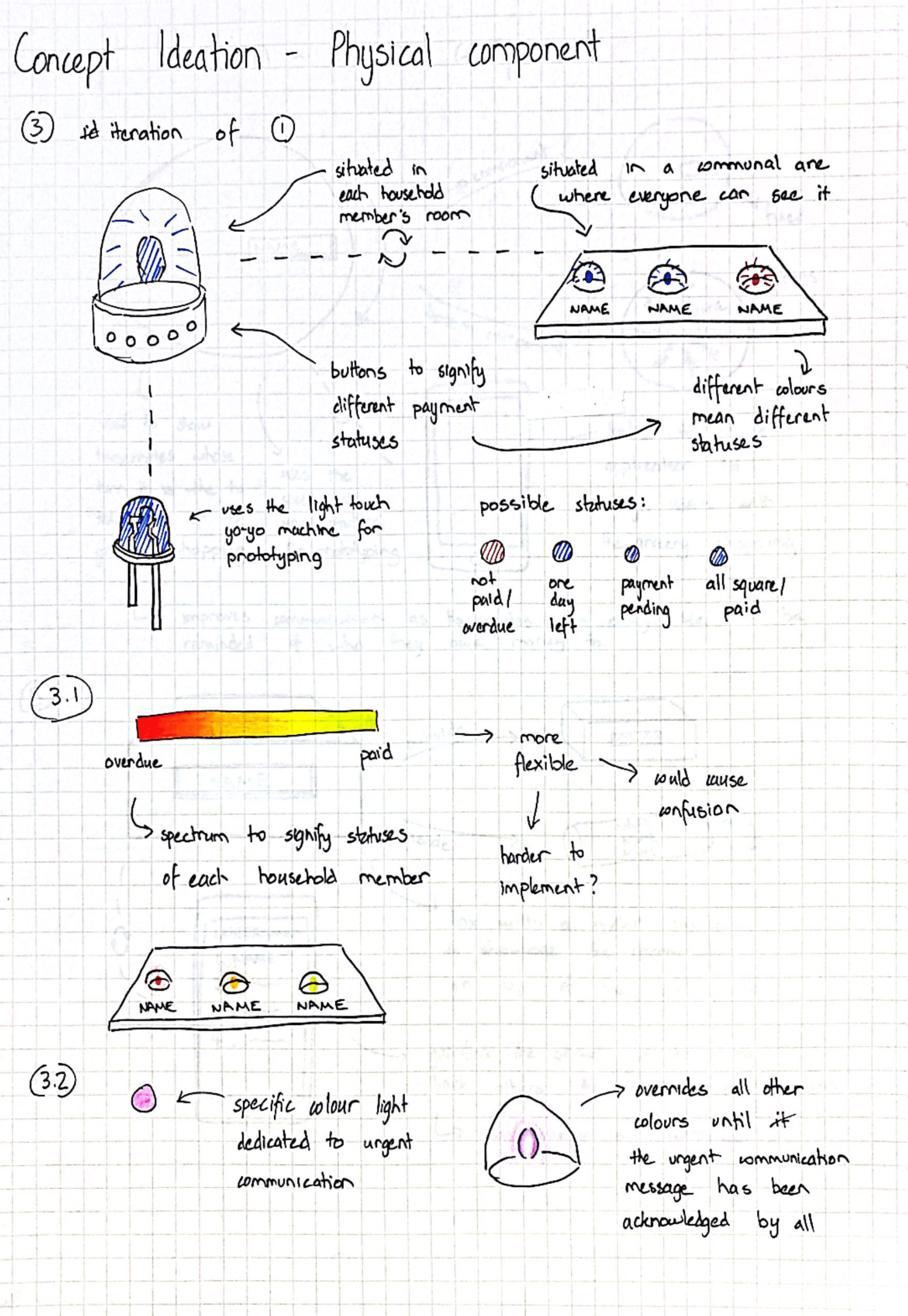
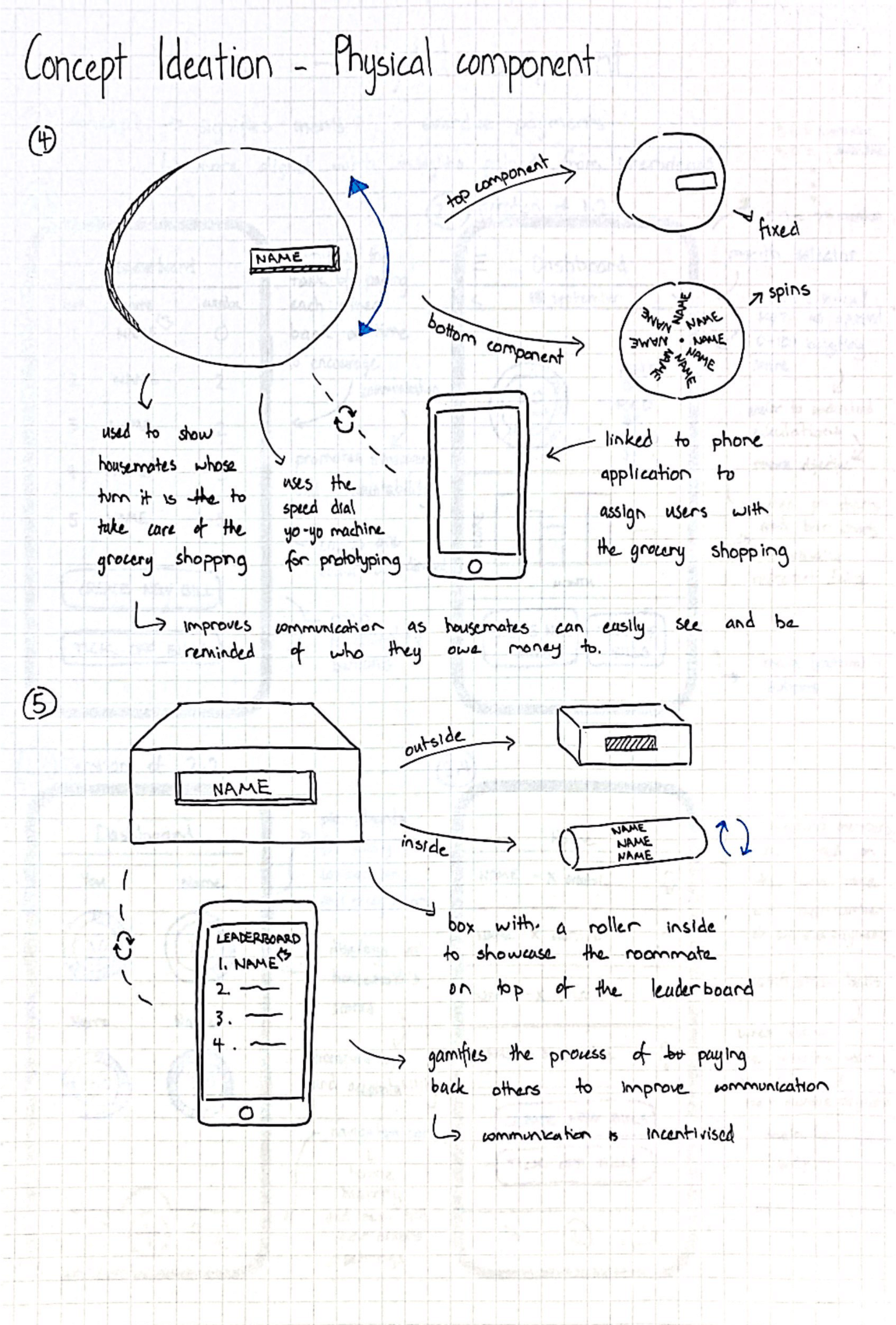
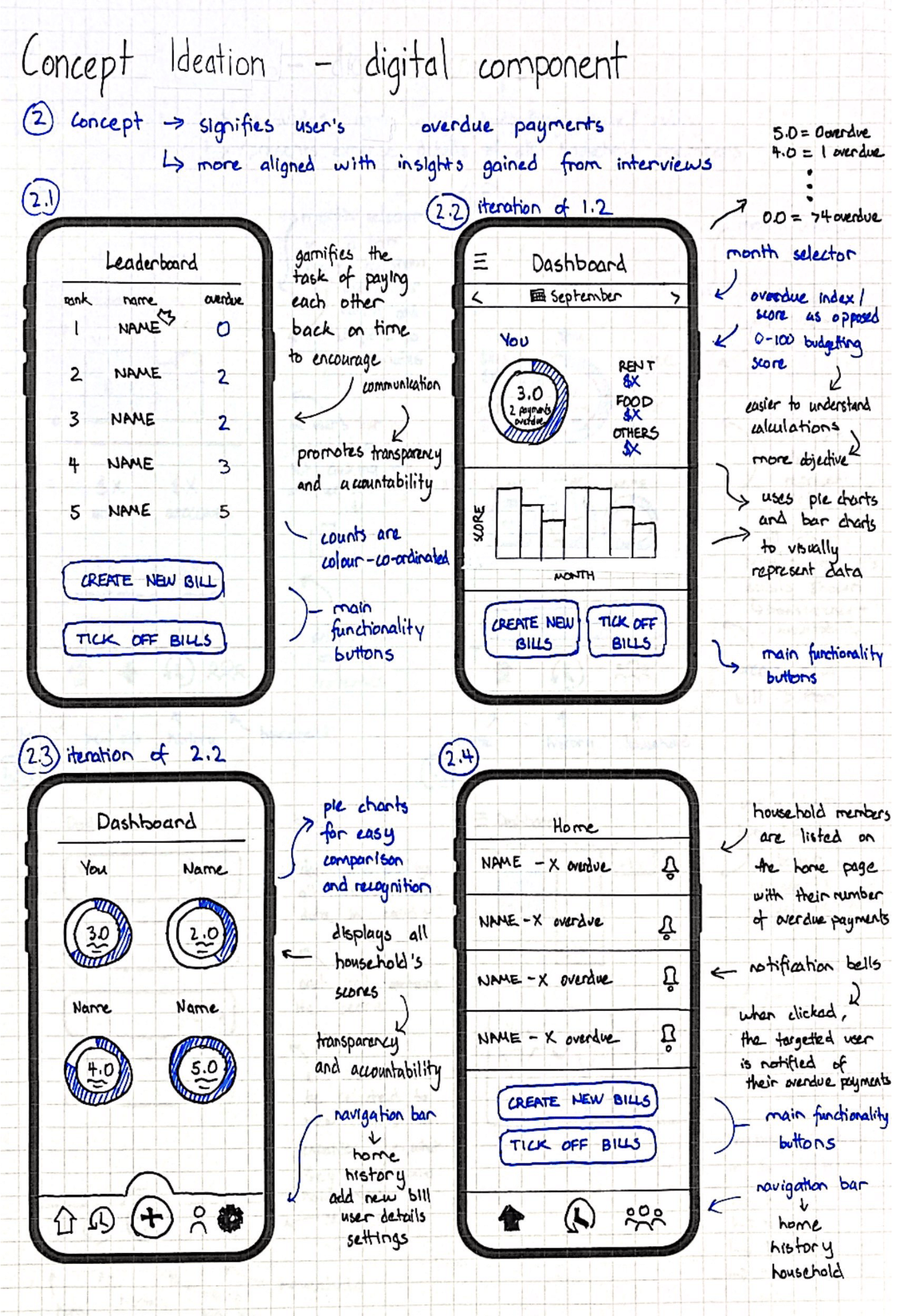
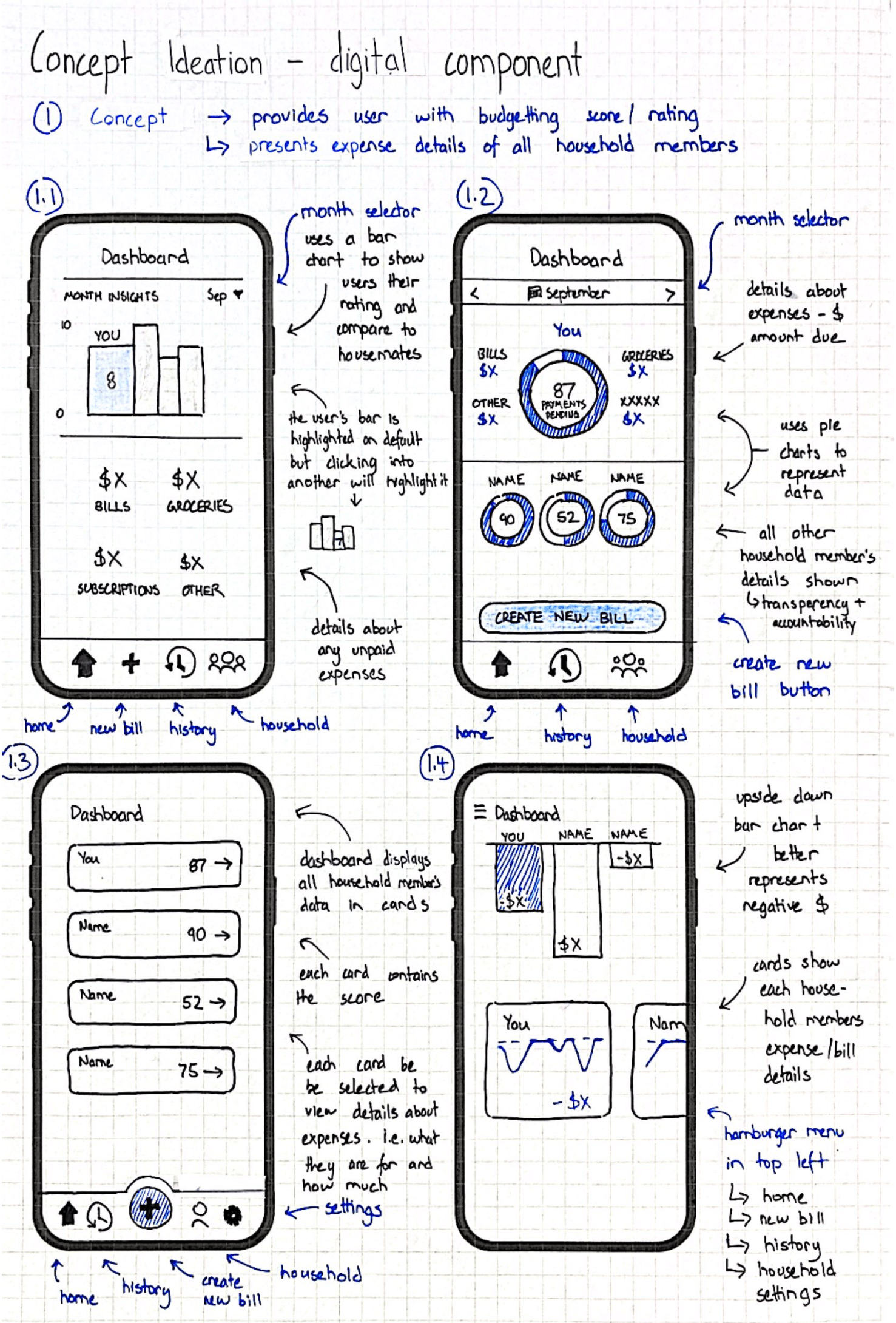
It was decided that a combination of physical idea 3 and digital idea 2.2 would produce the most effective solution. Hence, I created prototypes in the form of screen mockups on Figma. A selection of these screens are shown below.




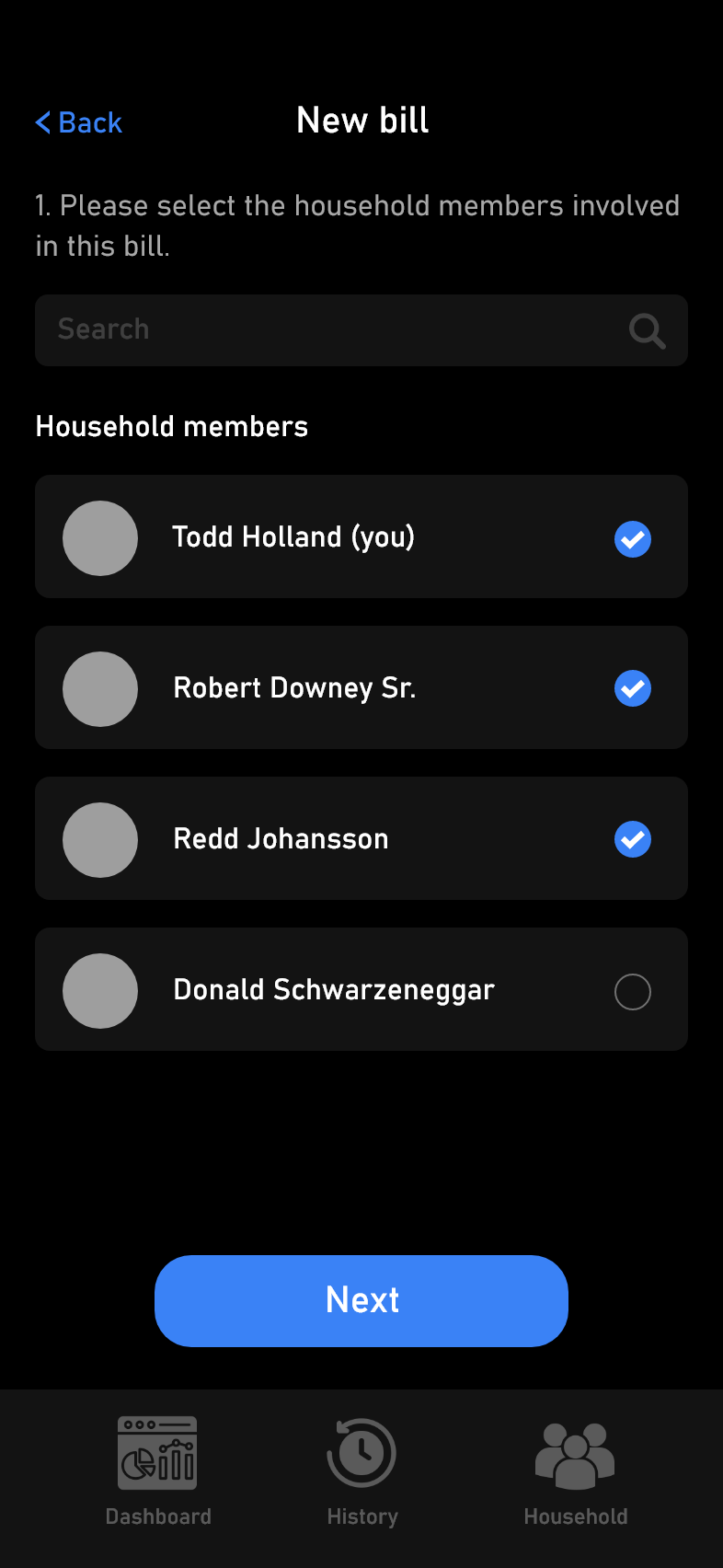
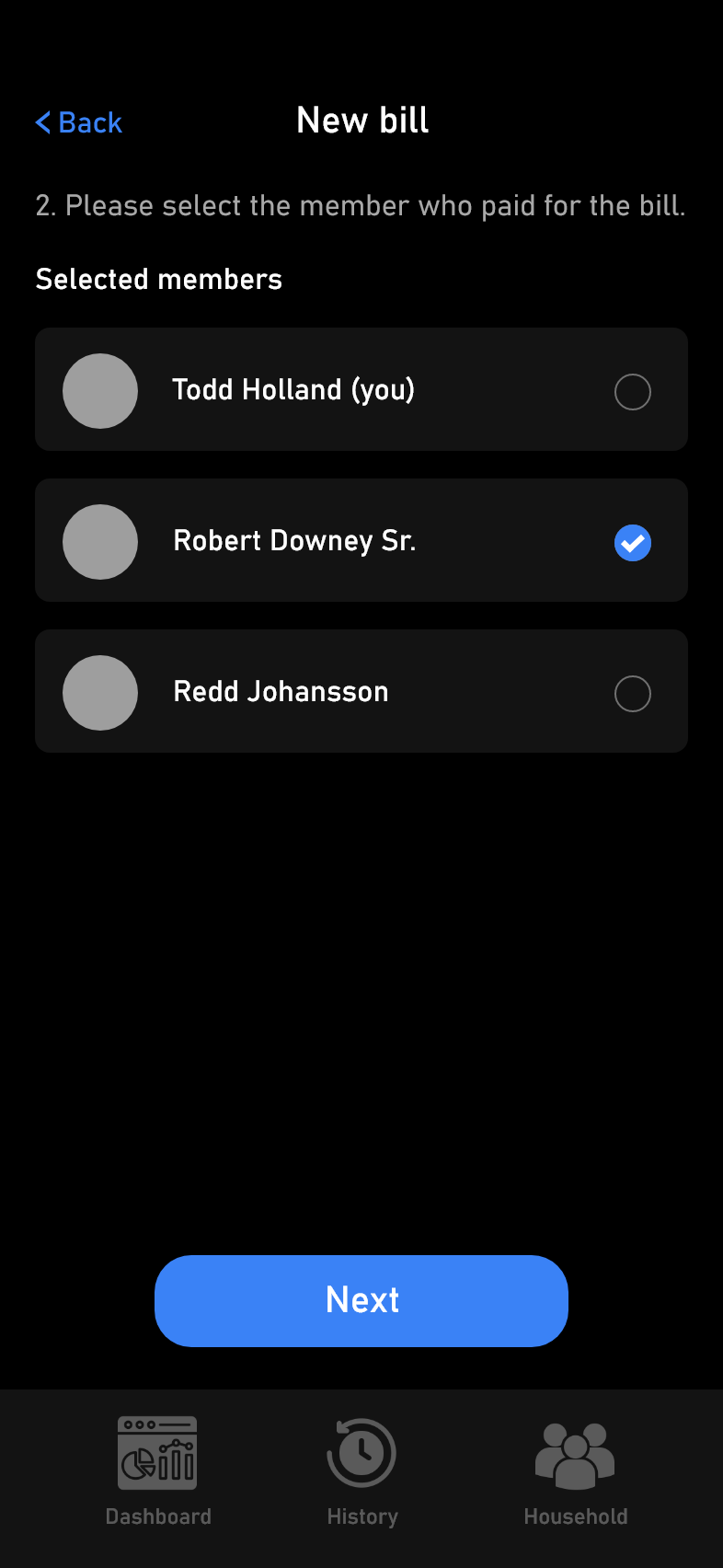
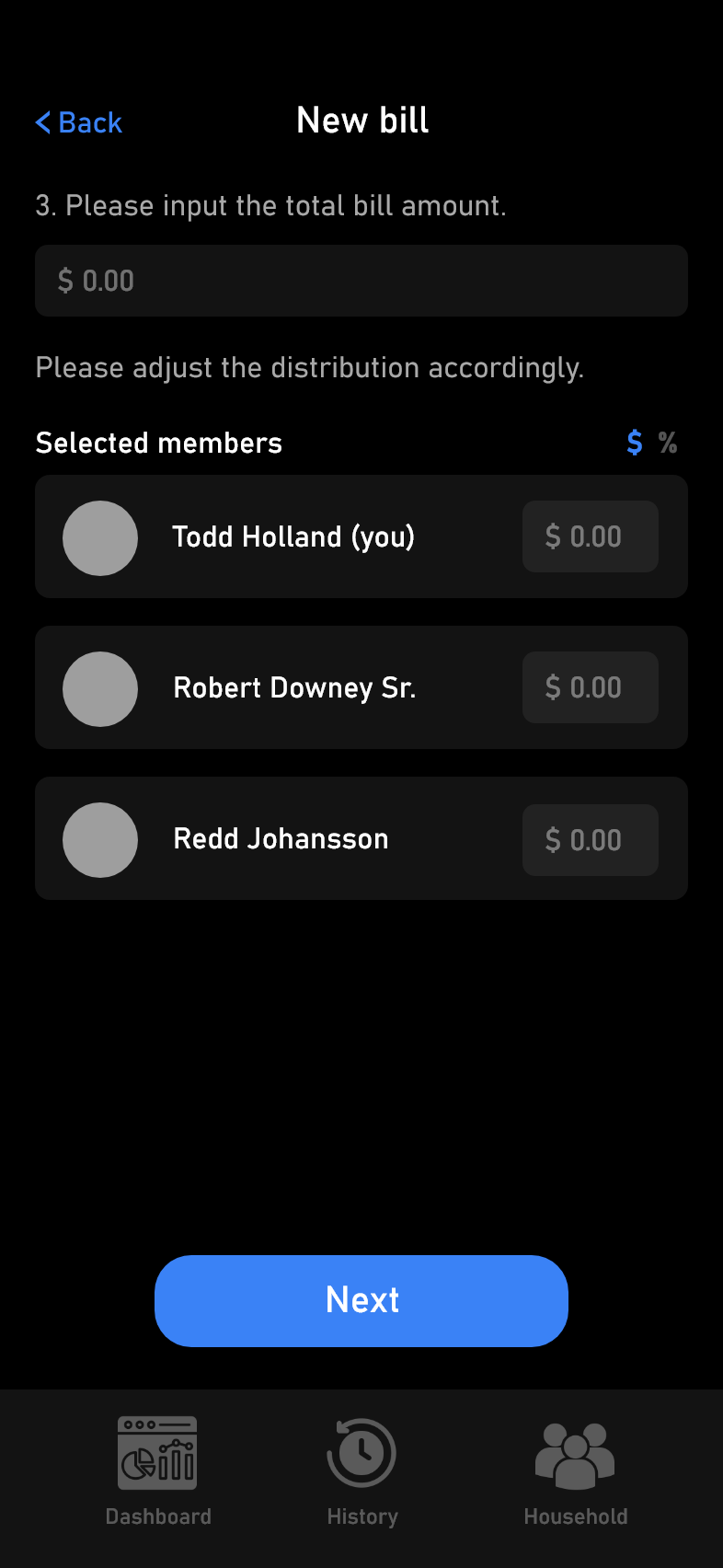
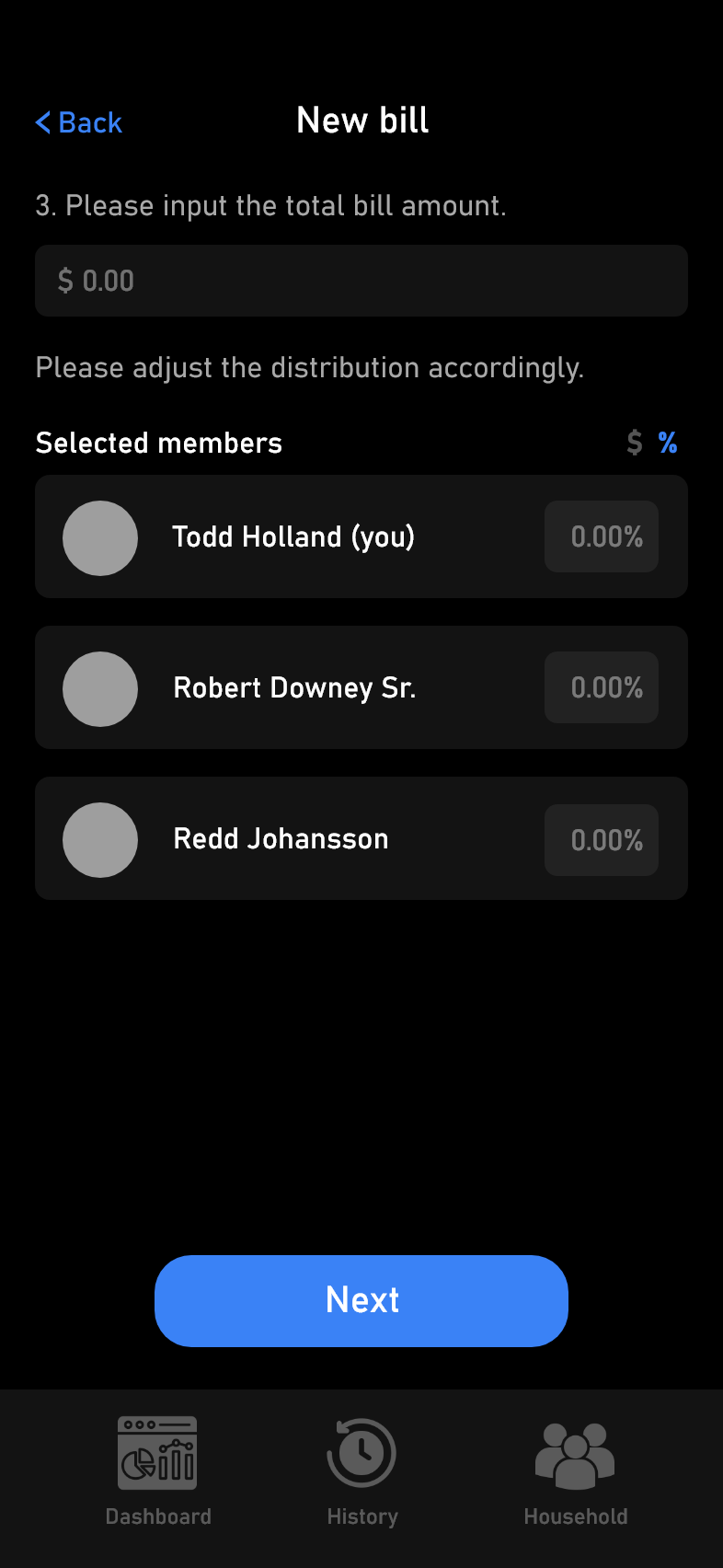
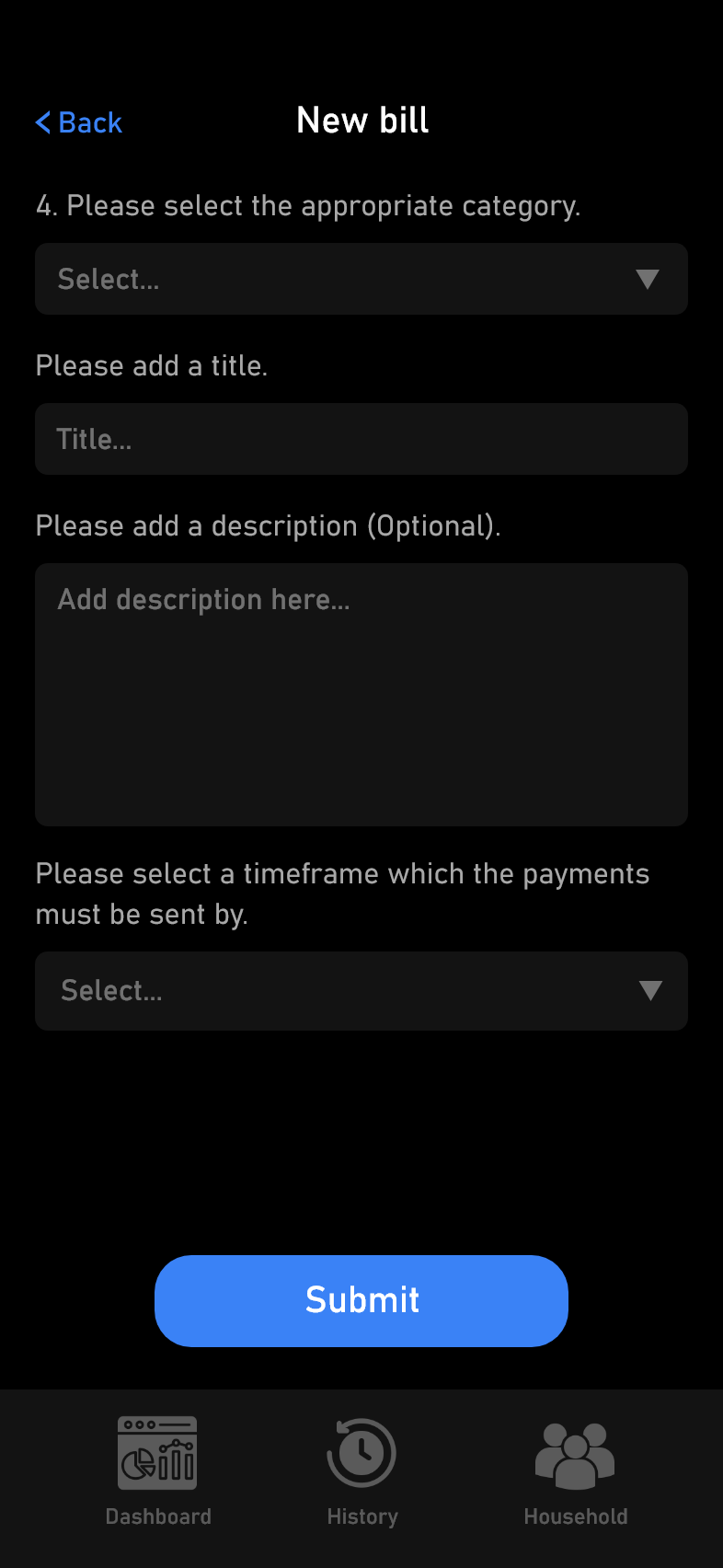
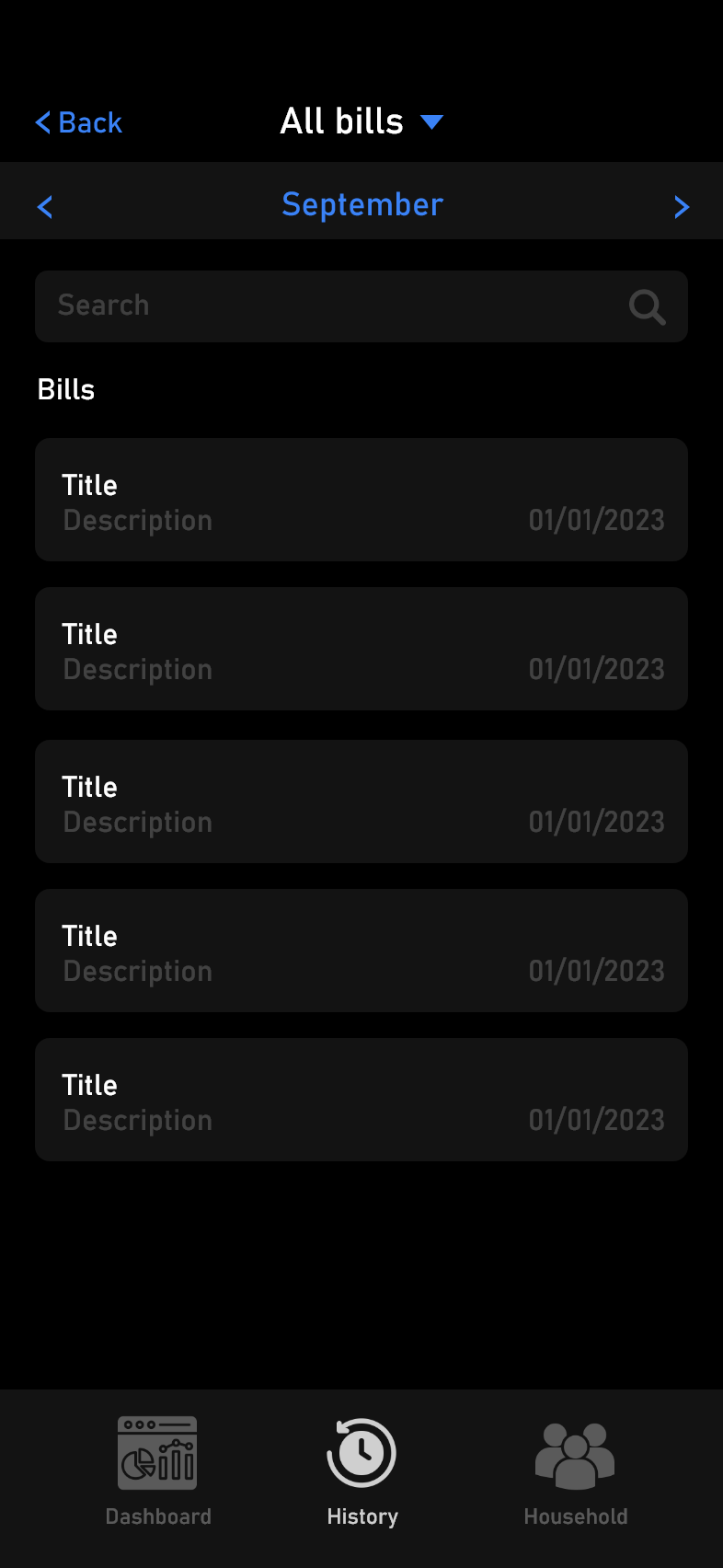
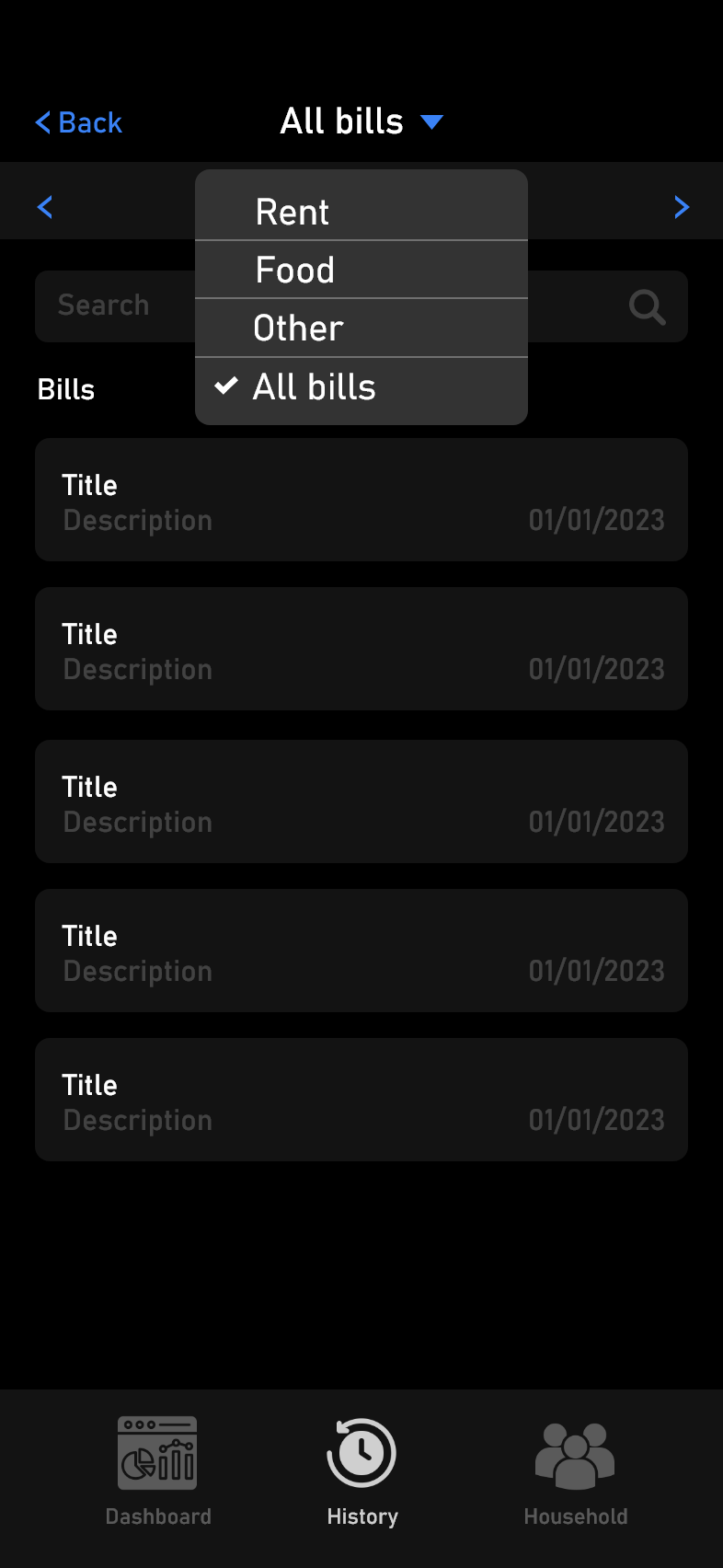
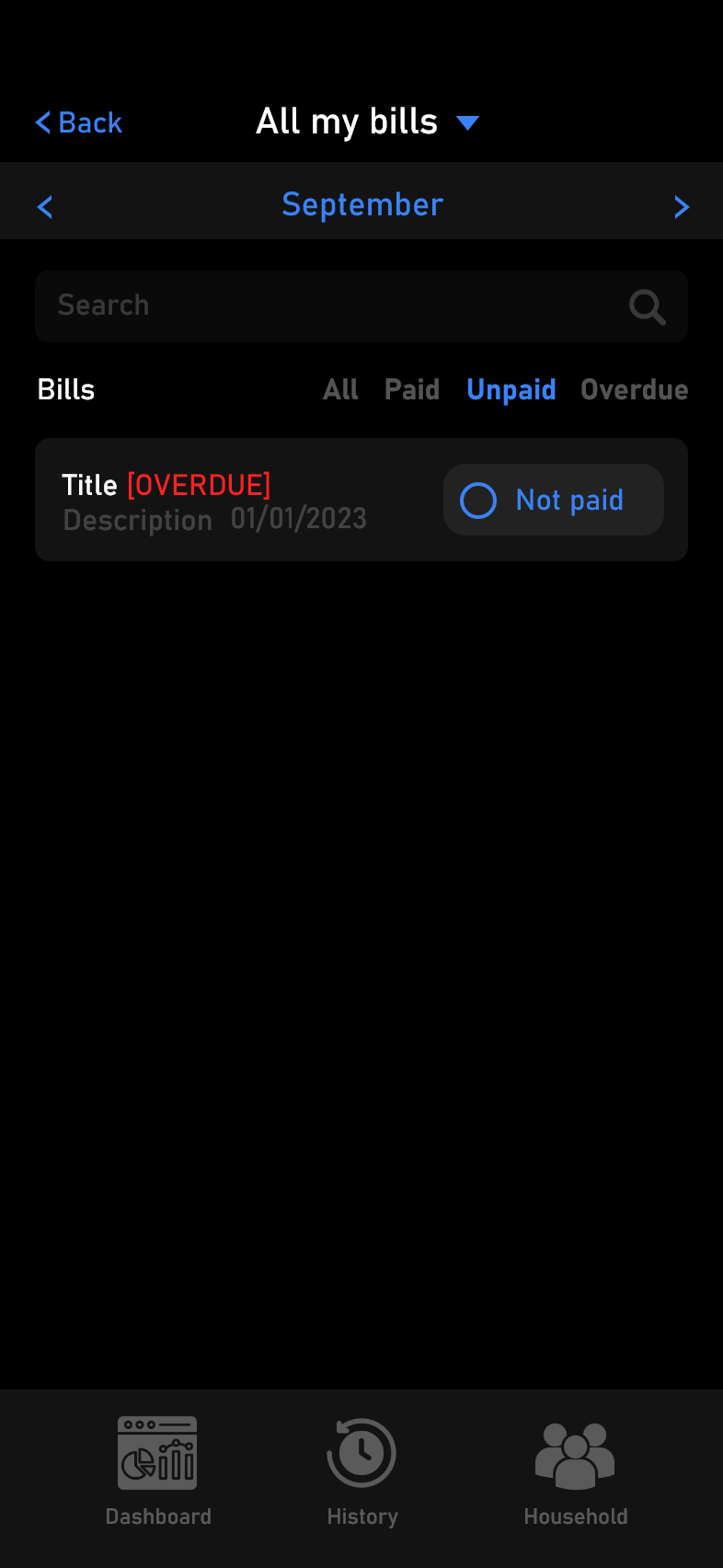
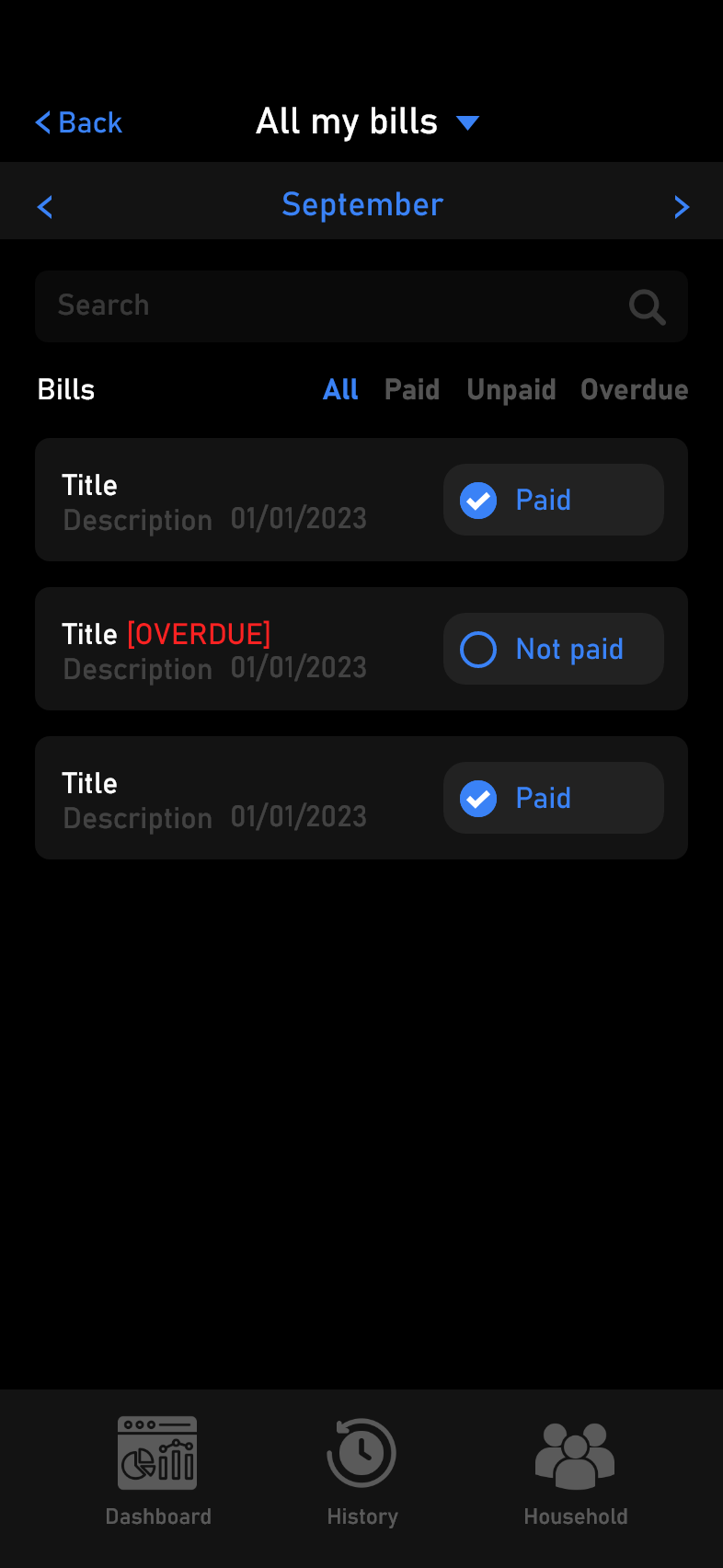
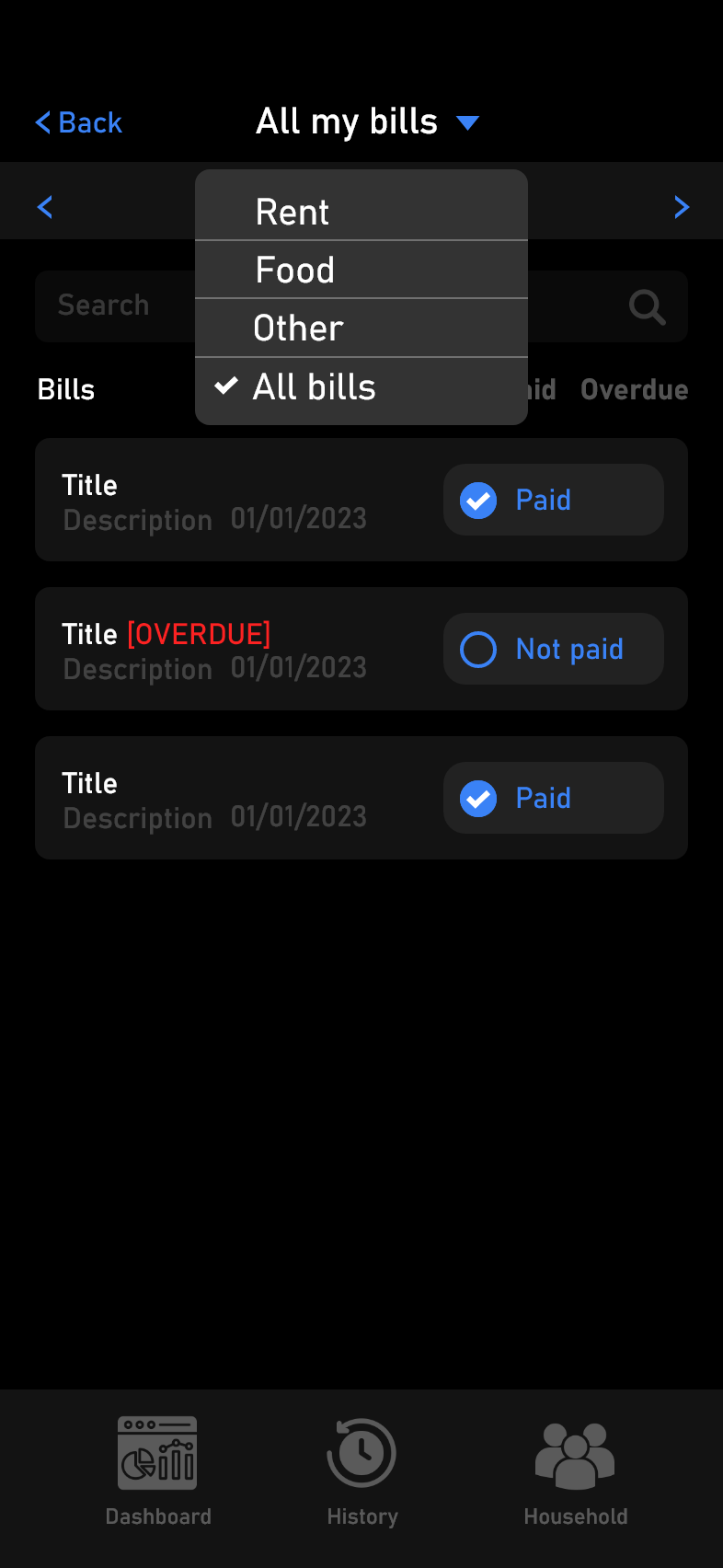
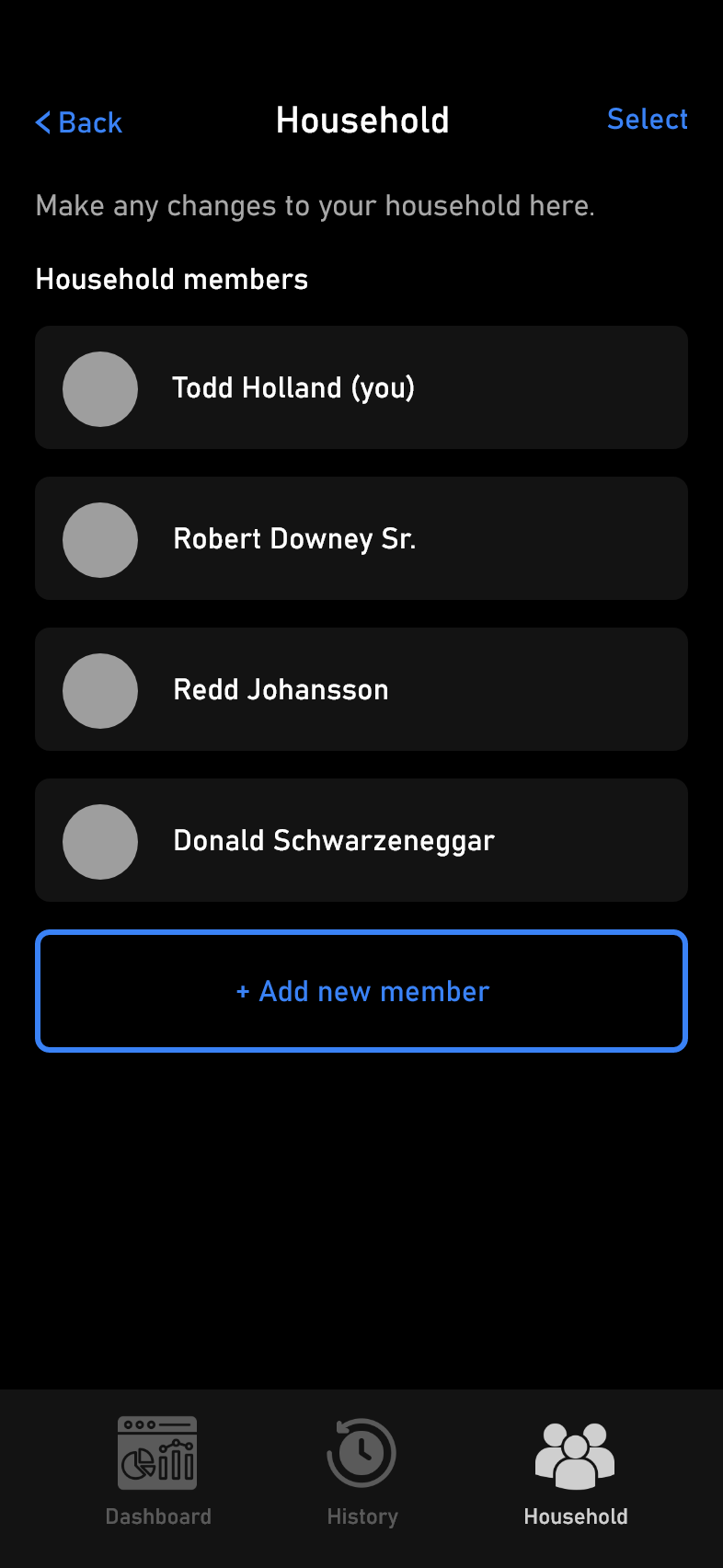
The programming team then created a functioning prototype using React to program the application and Arduino to prototype the light system. These were connected through a live server to control the lights.
Participants were asked to simulate shared expense management using Splitbill, focusing on tasks like creating bills, tracking payments, and observing payment statuses via the LED and display system. The goal was to assess if Splitbill could prompt timely payments and reduce communication friction around shared finances. Observations highlighted that while users appreciated the gentle reminders, some felt initially uncomfortable with the LED’s color-coded signals of overdue payments.
Based on the feedback, adjustments were made to foster a more positive experience. The credit system was altered to reward timely payments, shifting away from highlighting overdue payments directly. The LED display was modified to show a unified household status rather than individual performance, which reduced the perceived sense of shaming. A 7-segment display was added to indicate the number of pending payments rather than individual credit scores, creating a less targeted but effective prompt for action.
After implementing these changes, additional testing showed an improved user response. Users found the revised system more motivating and less invasive, supporting proactive conversations about finances. This stage demonstrated that refining based on user feedback could greatly enhance the acceptance and usability of the Splitbill system, ensuring it aligned with the values of fairness, trust, and effective communication in shared households. It also shone light upon the potential for involving other households, creating the opportunity for competition and further incentive.
Note: This portfolio page provides a very concise summary of the project. If you would like to learn more, feel free to get in touch.